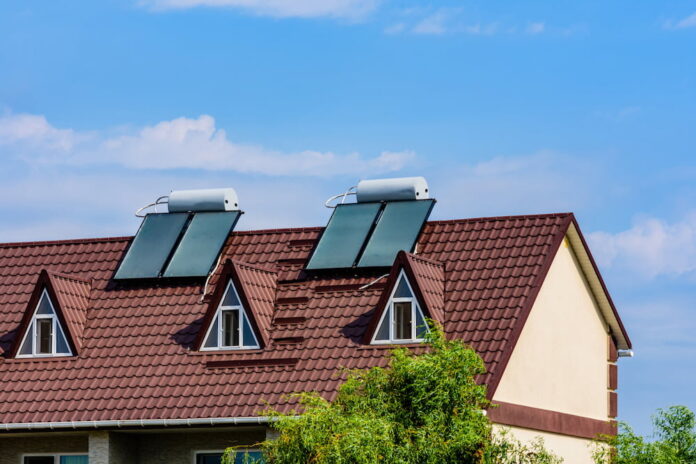Do you want to be more self-sufficient and positively impact the environment?
Home solar energy systems have a lot of benefits and allow you to generate energy. If you’re interested in learning more but need help figuring out where to start, a solar power guide can help you get up to speed.
Your solar energy expert can show you how home solar energy systems work and how you can incorporate them into your life. You’ll know how to install your system, maintain it, and use it effectively once you’ve mastered your education.
Let’s explore everything you need to know about the benefits of solar power and how your system works.
Introduction to Solar Power 101
Solar power is a term used to describe the use of renewable energy produced by the sun. Home solar energy systems use photovoltaic (PV) cells to absorb sunlight and convert it into electricity.
PV cells are made of layers of semiconductor materials like silicon and conduct electricity when exposed to sunlight. Once the PV cells absorb sunlight, the electricity flows into an inverter.
It converts it into usable AC (alternating current) electricity. The AC electricity is then sent to a breaker box or main panel box in the home, enabling it to power its electrical systems.
Understanding How Solar Panels Generate Electricity
When photons of sunlight are taken in by the solar cells in a solar panel, a process called the photovoltaic effect happens. This is how electricity is made. When these photons are taken in by the solar cells, they cause the electrons to get excited and break away from their atoms.
The grid of conductive material in the solar cell then grabs these free electrons and directs their flow to make an electric current. Check this website for more details on how home solar panels work.
Benefits of Installing Home Solar Energy Systems
More people are turning to solar energy as an excellent resource for energy consumption. Homeowners are installing solar energy systems on their properties.
It is an economical and eco-friendly way to power their homes. Here are some benefits;
Reducing Utility Bills
Solar panels can reduce your utility bill by generating solar power. Your power bill savings depend on your solar panel installation size, your electricity usage, and your location’s sunlight. You may be able to generate more electricity than you need and sell it to the utility provider for bill credits.
Increasing Home Value
Increasing the value of your home through solar power is an attractive investment for many homeowners. It can increase the property’s value and reduce energy bills.
Protecting the Environment
Solar energy is one of the most sustainable, renewable energy available and can help protect the environment. Solar power helps to reduce air pollution.
It helps eliminate the need for energy derived from fossil fuels, which are the main contributors to air pollution. Solar energy is a great way to reduce your carbon footprint and benefit the environment.
Grants and Incentives
Solar grants and incentives are available at the federal, state, and local levels. These can help make solar more affordable for homeowners and businesses.
Components of the Home Solar Panel System
Home solar energy systems are made up of a few key components. Some components generate enough energy to power a home or business. Here are some components;
Solar Panel
Solar panels, also known as photovoltaic (PV) cells, are the primary component of home solar systems. They convert sunlight into electricity that can power small electronics and appliances.
It provides electrical power to homes and businesses. Solar panels consist of several small individual cells made from crystalline silicon. Other semiconductor materials are capable of capturing photons of sunlight.
It converts them into electricity. In most residential solar energy systems, solar panels connect to an inverter and an array of batteries in a battery bank.
The solar panels collect the solar energy and convert it into electricity, which is stored in the batteries. The electricity generated by the home solar panels will continue to flow through the inverter and provide power to the home until the batteries need to be recharged.
Inverter
Inverters play an integral part in home solar systems. The inverter receives the power generated from the solar PV cells and then converts it to an alternating current (AC) suitable for home use.
Solar energy from home solar systems would be usable in homes with an inverter. Inverters come in various shapes and sizes to meet the needs of specific solar systems.
Most home energy systems include one or more inverters for exceptional environmental and climate conditions. Inverters also protect the system from overloading and fire risk in certain situations.
Inverters also can be monitored to ensure power stations are performing optimally. Inverters are an essential component in a home solar energy system as they are crucial to converting the power generated by the solar array into usable power for homes.
Types of Solar Panels
Two types of solar panels are used in home systems—polycrystalline and monocrystalline. Polycrystalline solar panels are both efficient and cost-effective, but their efficiency is slightly lower than that of monocrystalline panels.
Monocrystalline solar panels offer higher efficiency and longer lifespans, making them more expensive. Both panels capture sunlight and turn it into electricity, which is then either used immediately or stored in batteries for later use. Additionally, most home systems are connected to the utility grid, providing more stability to the power supply.
Getting Home Solar Energy Systems Will Do you Good
Home solar energy systems offer a reliable, renewable source of power that can reduce your energy costs. With some research, you can decide if switching to solar is ideal for you and your home.
Want to learn more? Take the first step now by reaching out to experts and gathering information on solar energy for your home.
Did you find this article helpful? If so, check the rest of our site.

